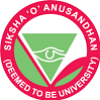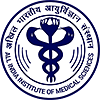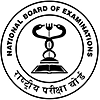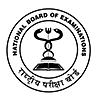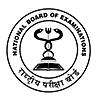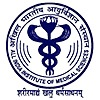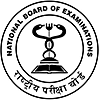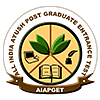MD Biochemistry Syllabus and Subjects

MD Biochemistry syllabus is a three-year-long postgraduate course that deals with medicine, dentistry, and veterinary medicine. MD Biochemistry subjects include Biology with Organic, Inorganic, or Physical Chemistry. There are both core and elective subjects that are part of the curriculum.
Semester Wise MD Biochemistry Syllabus
Doctor of Medicine in Biochemistry subjects are designed to ensure that the students get a chance to study all the vital aspects of biochemistry. The MD Biochemistry course aims to introduce students to concepts relating to the interaction of herbicides with plants and more. MD Biochemistry subjects list is given below according to the semesters:
|
Semester I |
Semester II |
|
Introductory Biochemistry & Molecular Biochemistry |
Recent Advances in Clinical Biochemistry & Biochemical Methodologies |
|
Biochemistry of Hormones, Vitamins, Minerals, Enzymes & Clinical Biochemistry |
Biochemistry of Body Metabolism |
|
Semester III |
Semester IV |
|
Enzyme Kinetics/Electrophoresis |
Standard Curve/Paper Chromatography/TLC |
|
Applied Biochemistry |
Virology |
|
Recent Advances |
Parasitology |
|
Semester V |
Semester VI |
|
Bacteriology |
Research Project |
|
Mycology |
Virology and Parasitology |
MD Biochemistry Subjects
The Doctor of Medicine in Biochemistry syllabus focuses on food science and biochemistry primarily. In food science, biochemists research ways to develop abundant and inexpensive sources of nutritious foods, determine the chemical composition of foods, and develop methods to extract nutrients from waste products or invent ways to prolong the shelf life of food products. Listed below are the core subjects that the students are introduced to through the syllabus:
- Bacteriology
- Mycology
- Applied Biochemistry
- Recent Advances
MD Biochemistry Course Structure
The MD Biochemistry course structure consists of six semesters, spread out in three years. There are both core and elective subjects that are part of the curriculum. Additionally, in the sixth semester, students are required to submit a research proposal and research project related to their specialization. The course structure is given below:
- VI Semesters
- Core Subjects
- Elective Subjects
- Research Project
MD Biochemistry Teaching Methodology and Techniques
MD Biochemistry teaching methodology and techniques include traditional classroom teaching and practical sessions. Classroom-based teaching gives students the opportunity to ask any queries they may have. The practical sessions help them get a real-life experience with respect to everything they study in the classroom. Listed below are the teaching methodology and strategies in general:
- Lectures
- Practical Sessions
- Research Papers
- Seminars
- Group Discussions
- Internships
MD Biochemistry Projects
When pursuing MD Biochemistry students are expected to work on a research project. The MD Biochemistry project ideas come from the specialization that the students choose to pursue. Some of the popular MD Biochemistry projects topics undertaken by the students are mentioned below:
- Recent Advances in Clinical Biochemistry & Biochemical Methodologies
- Biochemistry of Body Metabolism
- History of Biochemistry
MD Biochemistry Reference Books
Students should always consider investing in reference books when pursuing a master’s degree. These books can help them learn about their specialization in greater detail and depth. They can purchase, rent or download these books. Listed below are some of the popular MD Biochemistry books that the students can invest in:
|
Name of Book |
Author |
|
Biochemistry |
Donald Voet |
|
Harper's Illustrated Biochemistry 31st Edition |
David A. Bender and Victor W Rodwell |
|
Lehninger Principles of Biochemistry: International Edition |
David L. Nelson and Michael M. Cox |





